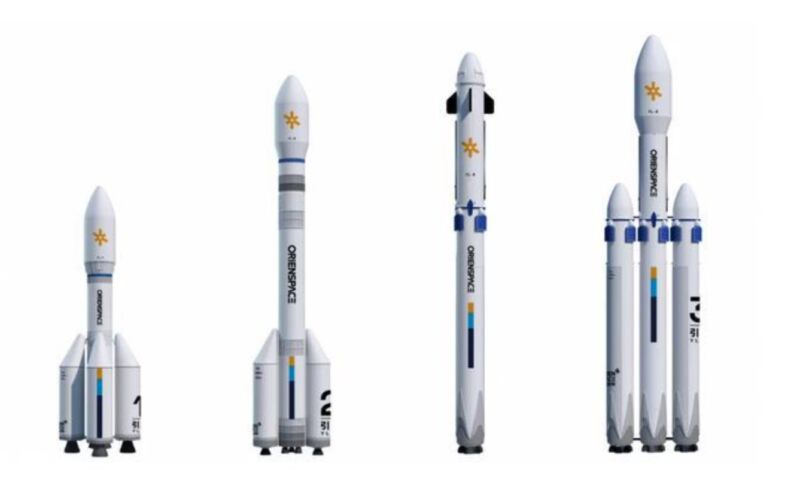
Welcome to Edition 4.30 of the Rocket Report! There is plenty to discuss this week with NASA significantly expanding its support for the development of commercial rockets and a spicy new rocket tax proposal in the Land of Enchantment.
As always, we welcome reader submissions, and if you don't want to miss an issue, please subscribe using the box below (the form will not appear on AMP-enabled versions of the site). Each report will include information on small-, medium-, and heavy-lift rockets as well as a quick look ahead at the next three launches on the calendar.

NASA beefs up venture-class launch program. Back in October 2015, NASA initiated what it called a "Venture Class Launch Services" program to foster the development of commercial launch services. The first contracts went to Firefly, Rocket Lab, and Virgin Galactic (later to become Virgin Orbit). Since then, all three companies have launched a rocket, and Rocket Lab and Virgin Orbit have operational orbital rockets. In December 2020, NASA funded "round two" of the program, supporting Firefly, Relativity Space, and Astra with contracts to launch small satellites. The value of these contracts was relatively small (less than $10 million each) but provided investors in these companies with confidence.
A worthy effort ... This initiative has been successful enough that NASA is significantly expanding it. On Wednesday, NASA announced it had selected 12 companies to provide launch services for the agency's Venture-Class Acquisition of Dedicated and Rideshare (VADR) missions over the next five years. These contracts will be worth as much as $300 million in total. Companies include blue-chip launch firms (such as SpaceX and United Launch Alliance) and emerging companies (such as Phantom Space) that are likely a few years away from the launch pad. The contract also includes launch services firms such as Spaceflight Inc. To NASA and the companies, I say "Bravo!" This is exactly the kind of thing you want your space agency to do if you're interested in preserving, and even growing, the commercial space leadership role that the United States has on the world stage. (submitted by Ken the Bin)
Astra hot fires its rocket at the Cape. The California-based launch company test-fired its two-stage rocket at Cape Canaveral on Saturday in preparation for an upcoming demonstration flight for NASA. The static fire test occurred on launch pad 46 at Cape Canaveral Space Force Station, Spaceflight Now reports. The rocket's five Delphin engines, burning kerosene and liquid oxygen propellants, fired for less than 10 seconds. Astra is preparing to deliver four small CubeSat nanosatellites into orbit under contract to NASA's Venture Class Launch Services program.
Tiny rocket, big success? ... The company will announce the target launch date and time for the mission after receiving a launch license from the Federal Aviation Administration. The static fire test was expected to be a prerequisite for Astra receiving a license. Astra's rocket is small compared to other launch vehicles that regularly fly from Cape Canaveral. Called Rocket 3.3 or LV0008, it stands just 13.1 meters tall, less than a fifth the size of SpaceX's Falcon 9 rocket. Astra's rocket has previously reached orbit one time and failed three times when launching from Alaska.
New Mexico may tax Virgin Galactic tickets. The state of New Mexico has provided more than $200 million to Virgin Galactic for the development of a spaceport in the southern part of the state, near Las Cruces. Now, a bipartisan bill in the state's legislature seeks to recoup some of that investment. The taxes on a Virgin Galactic spaceflight would amount to about $31,000 per ticket, the Las Cruces Sun-News reports.
A small price to pay? ... If assessed in Sierra County, where the launches take place, the tax rate would be 6.9 percent. Virgin Galactic presently charges $450,000 per ticket, so this tax would add $31,218 to the price of a ticket to the edge of space. "New Mexico taxpayers have paid $220 million for a spaceport and… about $4 million a year toward running the spaceport," said Jason Harper, a Republican legislator co-sponsoring the legislation. "Charging sales tax for these tickets is not really asking that much in return." Virgin Galactic told the publication it is aware of the pending bill but offered no public opinion on it. (submitted by Ken the Bin)
Isar Aerospace wins European competition. Isar Aerospace has won 10 million euros ($11.1 million) in a European Union prize competition. During the 14th European Space Conference in Brussels on Tuesday, Thierry Breton, the EU commissioner whose portfolio includes space, announced that Munich-based Isar Aerospace won the European Innovation Council Horizon Prize for low-cost space launch, SpaceNews reports. Isar is developing a small launch vehicle called Spectrum that is slated to launch for the first time no earlier than late 2022.
Building credibility ... Isar was one of three finalists for the prize announced earlier this month by the European Commission. The other finalists were another German small launch vehicle developer, Rocket Factory Augsburg, and Spanish company PLD Space, which is working on a reusable small launcher. Those three came from an initial pool of more than 15 applicants. "This is a big, big deal for us, because it shows, first of all, the maturity on our side," Stella Guillen, chief commercial officer of Isar, told the publication. "It shows that we're leading these microlauncher activities in Europe. It's also a huge sign of trust from the European Commission. It gives credibility for what we are doing." (submitted by Ken the Bin)
reader comments
665